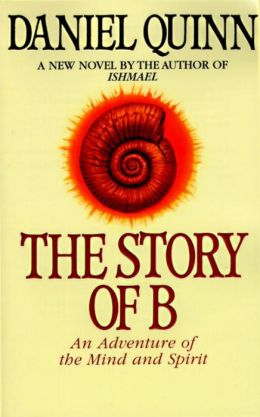This week’s selected media: October 8, 2023: The Story of B, Vaclav Smil on Energy, Neocolonialism by Ketcham
I read and watched this week:

The Story of B by Daniel Quinn: I read Quinn’s preceding book, Ishmael, but I think before all my sustainability leadership work. I was thrown by the talking gorilla and the book didn’t register with me.
Two people recommended Story of B to me, so I listened to it. One recommended it because sharing ideas from my upcoming book reminded her of it. Quinn’s views and mine overlap a lot. I don’t see the point of making this book a novel, since the story isn’t compelling. Quinn’s monologues are, though. I’d recommend just reading those parts.
Still, he doesn’t explain what motivated the cultural shift he calls totalitarian agriculture. I couldn’t have either, until listening to What Is Politics?, as you’ll hear in my conversations with its host. Material conditions explain a lot. Quinn got close, but missed some important parts that help solve the problem.
If you like Story of B, you’ll love my book. I’m almost finished the current draft.
Energy Revolution? More like a Crawl – Dr. Vaclav Smil: Smil is a Distinguished Professor Emeritus at the University of Manitoba, a Fellow of the Royal Society of Canada (Science Academy), and the Member of the Order of Canada; in 2010 he was listed by Foreign Policy among the top 100 global thinkers.
He recognizes that “growth must come to an end. Our economist friends don’t seem to realise that.” In a TIME article he wrote a top point:
Four materials rank highest on the scale of necessity, forming what I have called the four pillars of modern civilization: cement, steel, plastics, and ammonia . . . But it is ammonia that deserves the top position as our most important material: its synthesis is the basis of all nitrogen fertilizers, and without their applications it would be impossible to feed, at current levels, nearly half of today’s nearly 8 billion people. . .
Fossil fuels remain indispensable for producing all of these materials.
He shows how nuclear, fusion, solar, wind, and other sources can’t substitute. If modern civilization requires fossil fuels and using fossil fuels are killing people and will eventually run out, changing modern civilization seems the better option to collapse.
Neocolonialism: Pillaging the Earth for the ‘Climate’ by podcast guest Christopher Ketcham: Those who listened to my podcast episodes with Christopher knows he understands our environmental situation more than the superficial way most other journalists do. Readers also know how much colonialism our lifestyle requires from Cobalt Red (and my not-yet-posted conversation with its author Siddharth Kara).
Christopher continues reporting what we need to know to make informed choices. Switching to an electric car isn’t innocuous. (I should also add, alternatives abound that are effective, joyful, and increase democracy and free markets, including redesigning cities as podcast guest Jason Slaughter documents and having smaller families, as podcast guest Jane O’Sullivan debunks the myths about).
Here’s an excerpt from this article:
While the progress-minded executives of Lithium Americas told The New York Times that they were “answering President Biden’s call [to] tackle the climate crisis,” the Grandmas at Thacker Pass held a different view. Mining for the expansion of the electric vehicle fleet and the greening of the energy grid was for them no different than blowing up the valley for a coal mine. They saw the pillage of their sacred site as another iteration of rapacious techno-industrialism, the specialty of the white man’s culture. “This is just the same old program,” one Paiute resister, who requested anonymity, told me. “Neocolonialism. Extract and exploit. But now it’s ‘for’ the climate.”
Read my weekly newsletter

On initiative, leadership, the environment, and burpees